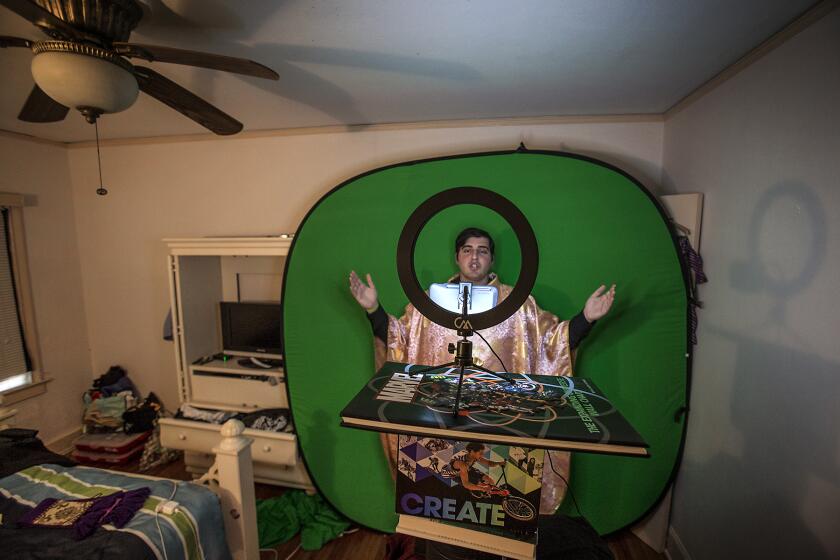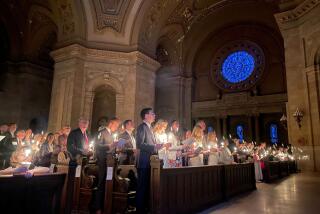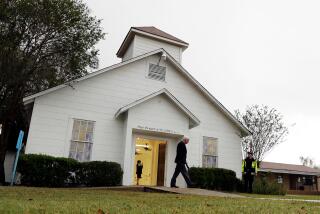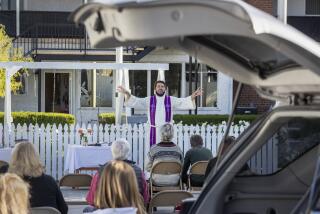Megachurch pastors defy coronavirus pandemic, insisting on right to worship
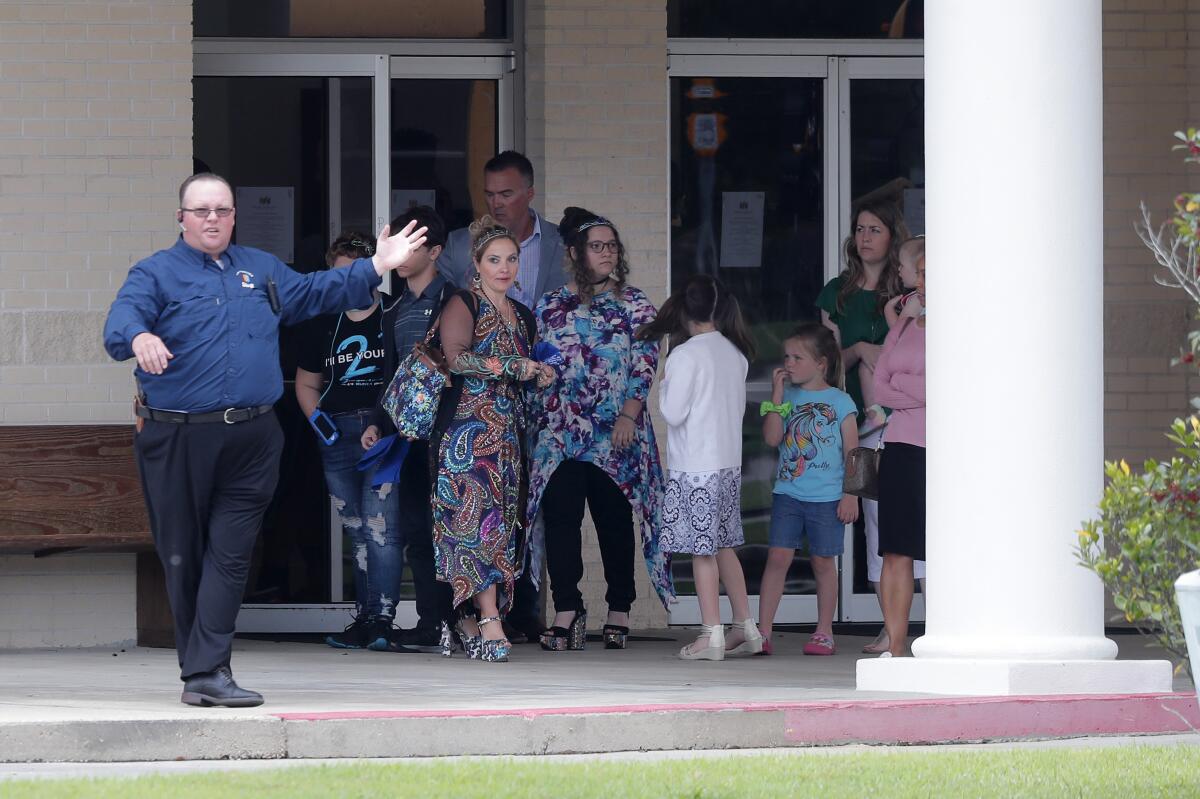
At any other time, in a predominantly Christian nation that enshrines freedom of worship in the Constitution, the news would sound absurd or terrifying: “Pastor arrested after holding church services.”
But that’s what happened this week when sheriff’s deputies handcuffed a Tampa, Fla., minister for violating municipal stay-at-home orders by gathering hundreds to worship.
Police said the minister, the Rev. Rodney Howard-Browne of the River at Tampa Bay, showed “reckless disregard for human life” by potentially exposing his congregants to the coronavirus.
Brown, now out on bail, has complained of “religious bigotry.” The church maintains that the right to assemble in worship is a fundamental freedom that cannot be abridged even in an emergency, and cites early American religious dissidents, including Baptists and Quakers, as examples of the religious persecution that the nation’s founders would have found intolerable.
The coronavirus pandemic — along with federal guidelines advising against large gatherings and state orders shutting down nonessential services — has spurred most houses of worship to go online. But several megachurches have revolted, pitting public health concerns against claims of religious freedom and competing views on what to do amid tumult. Some religious leaders maintain that it is precisely in times of despair and disorder that the faithful need to congregate.
In Louisiana, police issued a summons Tuesday to the pastor of Life Tabernacle Church in Central, La., near Baton Rouge, after he held services for 1,200 people in violation of state limits.
“Never been more proud to be persecuted for the faith like my savior,” the Rev. Tony Spell shot back.
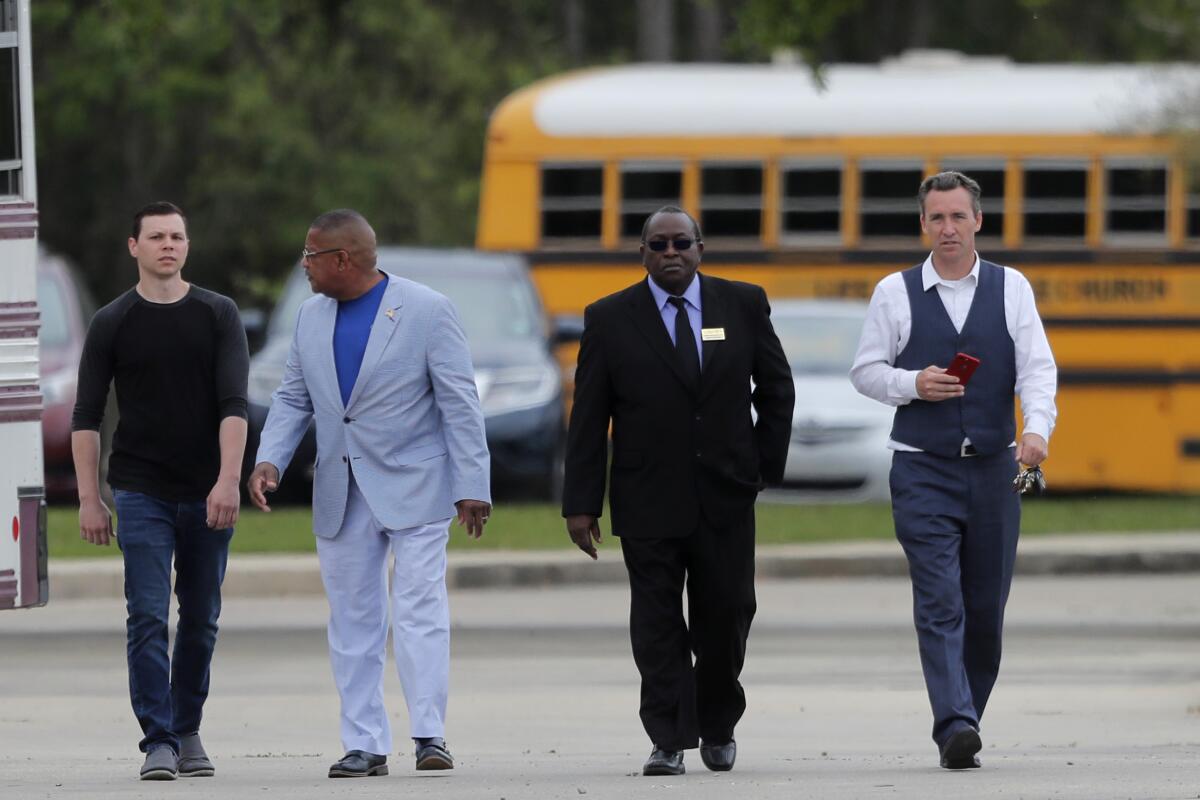
While more than half of Americans are under orders to stay at home, states have approached religious groups in different ways.
In Ohio, a shutdown order exempts religious gatherings. The same goes for Pennsylvania and New York, though both states have strongly discouraged worship centers from opening. One Ohio megachurch, Solid Rock near Cincinnati, has continued to meet despite harsh criticism from locals. In California, “faith-based services that are provided through streaming or other technology” are deemed “essential,” but not those that meet in person.
Legal experts say that while religious groups generally have wide latitude to worship under the 1st Amendment and state-by-state religious freedom laws, rules shutting down worship are legally sound if they apply across-the-board to all types of group meetings.
According to a national survey released last week of regular churchgoers, 17% of people said services were still ongoing despite warnings over the spread of the coronavirus. The poll — conducted by social scientists Paul Djupe of Denison University in Ohio, Ryan Burge of Eastern Illinois University and Andrew Lewis of the University of Cincinnati — asked 1,038 Americans who attend worship “more often than never” about how their churches had changed because of the growth of cases of COVID-19, the disease caused by the coronavirus.
The professors conceded that it’s possible some of those still attending services were going to small meetings at homes that did not violate federal or state guidelines.
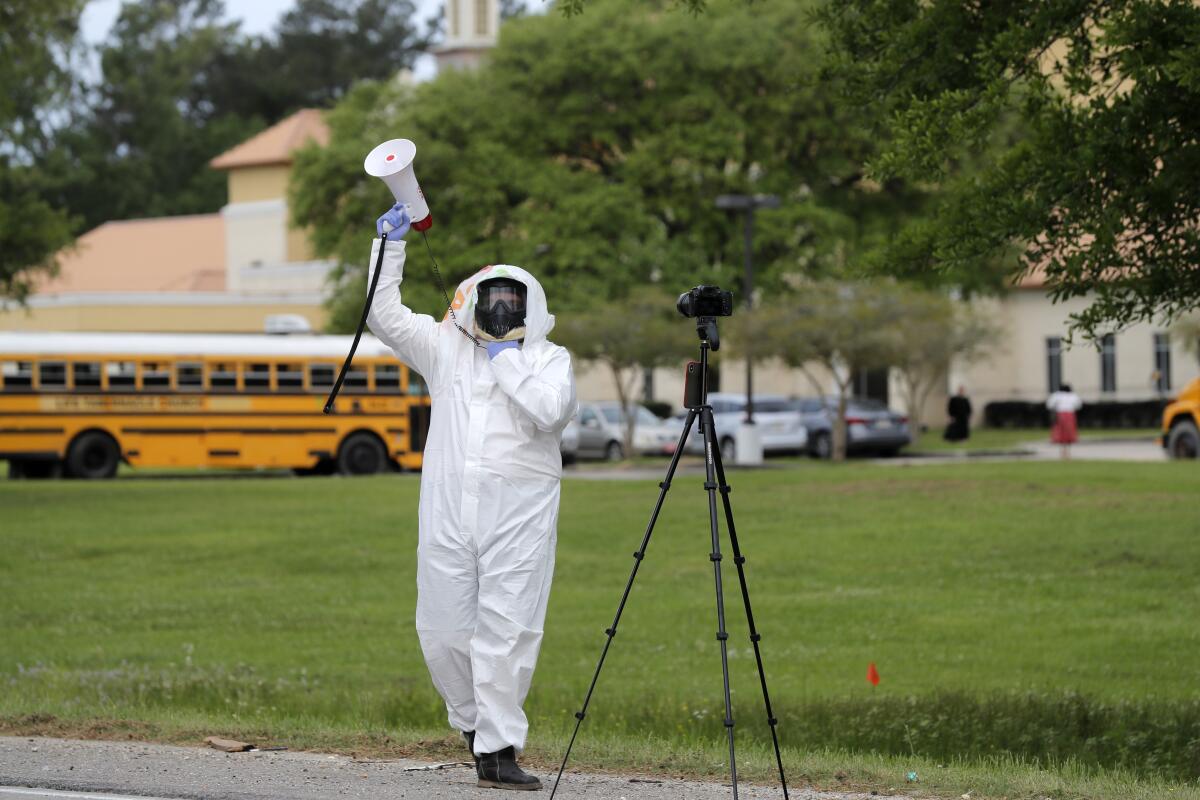
The loudest protests have come from conservative Christian voices.
R.R. Reno, editor of First Things, a prominent conservative Christian magazine, recently said in an article that politicians have been correct to put forth “stern measures to slow the spread of the virus.” But he added that churches should stay open.
“When we worship, we join the Christian rebellion against the false lordship of the principalities and powers that claim to rule our lives, including sickness and death,” Reno wrote this month.
Scott Thumma, a sociology and religion professor at Hartford Seminary, cautioned that megachurches facing criticism for meeting represented a tiny portion of religious Americans.
They are “a relative few — likely no more than 15% — of the over 1,700 Protestant megachurches in the country,” Thumma, who studies megachurches, said. “Those that are continuing to have services are most likely to be those who subscribe to prosperity gospel beliefs that claim God will protect them from adversity or are pitting their claims of religious freedom against the welfare of those they would like to evangelize. I would say that this percentage of large churches having service is roughly the same as smaller congregations who are still meeting, at least according to the few recently released polls and surveys.”
Thumma added that “megachurches and other large churches are the most well prepared to adapt to the present situation. They have the technical expertise, cameras and other technology, a system of small group ministry, and a well-established online giving program.” That’s something many small churches lack.
It’s not only Christian groups that have continued to meet. In New York, local media said police had to break up a bat mitzvah over the weekend in Lakewood, N.J., where there is a large Orthodox Jewish community. The ceremony had between 40 and 50 people attending. For Muslims, who commonly worship in large groups on Fridays, Islamic councils across the country have advised mosques to close. Many families have chosen instead to pray together in their homes.
The Rev. James Martin, a Jesuit priest and editor-at-large for the Catholic magazine America, suggested that religious groups that continued to meet in large numbers were hypocritical.
“I’m stunned by church leaders who reject the most basic advice from public health officials during a pandemic,” he said in an interview. “It’s just plain old stupidity, of the type that puts people’s lives in danger. As such, it’s anti-life. The next time any of these groups calls themselves pro-life, we need to remind ourselves about these death-dealing decisions.”
Times staff writer Molly Hennessy-Fiske in Houston contributed to this report.
More to Read
Sign up for Essential California
The most important California stories and recommendations in your inbox every morning.
You may occasionally receive promotional content from the Los Angeles Times.

